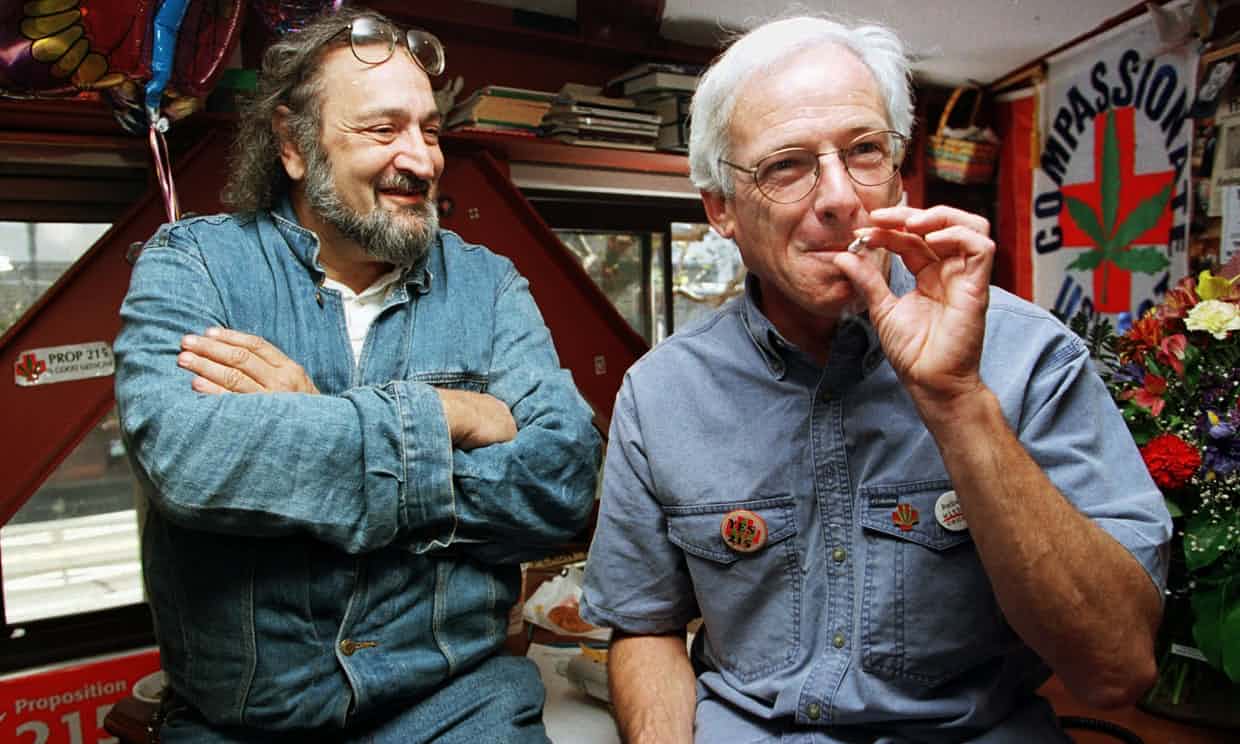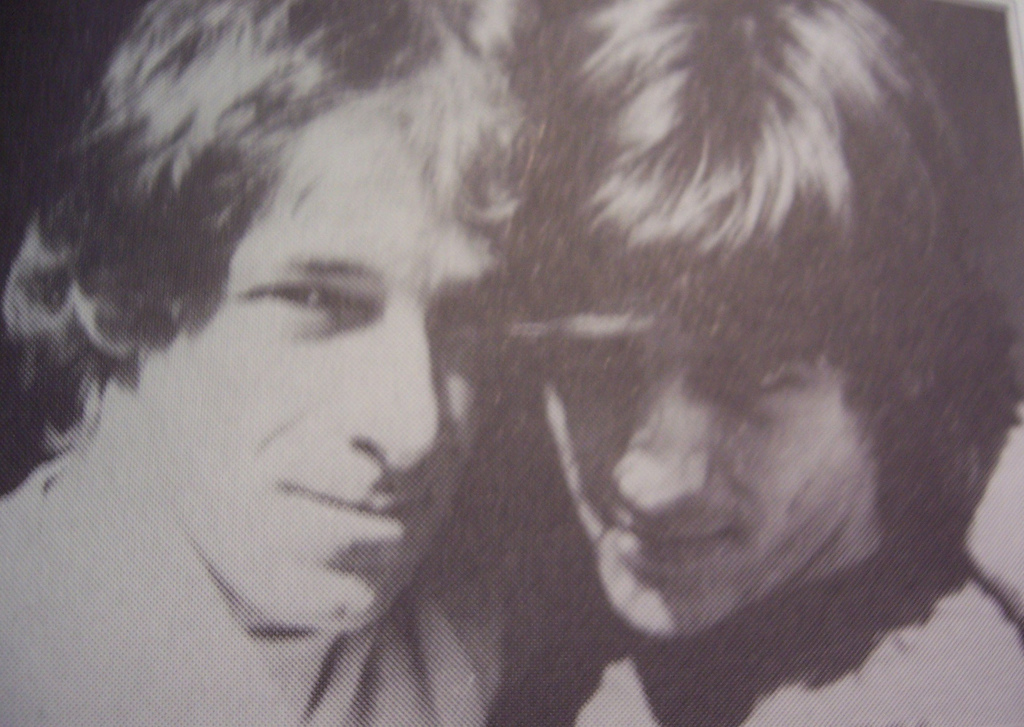The history of cannabis is riddled with myths and legends who risked everything, even their freedom, to open the way to the dream of many: a society where pot isn't demonized. Dennis Peron, legendary activist and co-author of Prop. 215, was indeed a key player in the history of medical marijuana. His commitment to the cause and his persistence allowed thousands of people to benefit from the properties of this millennial plant. Dennis Peron passed away on January 27 and today we want to pay tribute to this tireless activist who devoted his life to fighting for the rights of the sick. Thanks to him, cannabis is now legal in California. Plain and simple.

Dennis Peron was born in the Bronx, NY, in 1945, and raised on Long Island in an Italian-American family. In 1966, he was drafted to serve in the Air Force during the Vietnam War. Peron wasn't an ordinary soldier, though. Some 30 days before going off to war, he took part in the 'Summer of Love', slept in parks, ate acid, tripped out and became one of the hippies who supported the peaceful revolution aimed at spreading the message of peace and love all over the world. That could be the reason why he refused to fire the gun he was holding, "I told my superior officer that I couldn't do it and, when he asked me why, I said I had to close my eyes every time I had to fire". Despite his reluctance, he had to spend three years in Vietnam, a period during which two events that changed his life took place: he first encountered marijuana and he realized he was gay.
Homophobia, depression and cannabis
Back from Vietnam in 1969, he decided to settle in San Francisco, where he quickly felt part of the gay community. In an interview in 2014, Peron confessed to bringing a few pounds of weed back from Vietnam. However, although many people consider him a dealer, that was not the start of a drug-trafficking way of life but the beginning of a life devoted to cannabis activism. Sensitive and unselfish by nature, Dennis Peron, fueled by an ever-growing interest in the human psyche, studied to be a psychologist and completed an internship at the mental hospital of Napa, California. That's exactly when he realized he'd have to fight homophobia during his entire life. Many of the patients in the hospital were there merely for being gay since homosexuality was at that time seen as a disorder that had to be treated, a condition that was against the law. He started to experience the social rejection caused by his sexual condition, as described some years later in an interview: "Italian-American, Catholic and gay in the '70s US society, a combination that made me fall into depression. Thank God cannabis changed my life. It made me more open-minded, more capable of looking at the world from a completely different perspective. That's when I decided I wanted to help others climb out of the hole too".

Big Top Supermarket: the beginning of the legal battle
Determined to help the community, Dennis set up the Big Top Marijuana Supermarket, a kind of illegal dispensary in his very home which was located in the Castro District, San Francisco. The location became super famous and people of all kinds went there to buy pot. Obviously, the cops didn't take long to realize something was going on. Finally, in 1979, his house was raided and Peron was not only shot in his leg but charged with possession of nearly 200 lbs. of weed as well. He took plea bargains and ended up spending 3 months in hospital and 3 months in prison. While serving his sentence, his friend and activist Harvey Milk (the first man to be elected to public office despite his homosexuality) was murdered. That hard blow simply strengthened his conviction and his urge to fight for a better society, for a place without homophobia where cannabis could be legally distributed. AIDS and medical marijuana When the AIDS crisis broke out in the '80s, Dennis Peron got fully involved into helping the sick. Nowadays, with thousands of heterosexual AIDS patients, the idea of this virus only affecting homosexual people seems to have finally disappeared. At that time, though, particularly during the first stage, it was regarded by many as a gay disease, because that community was the one that received the hardest blow. Dennis Peron could see how the people around him succumbed to the disease. While he was helping them out, he discovered that cannabis could really ease the disease's devastating effects. It didn't cure AIDS, but it did provide for a better quality of life: apart from reducing nausea, it boosted their appetite and slowed down the cachexia syndrome. The concept of Medical Marijuana started to take shape. When his partner succumbed to the disease in 1990, his pain and despair turned into determination. "I couldn't understand why I got out alive, why I was the only one there while all those I loved had just gone. I couldn't figure out why the man I had spent my life with, my love, my everything, was dead and I wasn't". Dennis Peron managed to turn that guilt into a life mission: he was determined to find a way to insure the sick had legal access to the medical properties of the plant. Prepared to wage a legal battle 'till the very end, he initiated signature campaigns to put on the citywide ballot the initiative that legalized medical marijuana in San Francisco. This initiative, called Proposition P, obtained 80 % of the vote in November 1991.

Proposition 215, a breath of fresh air
After this small victory, the first medical cannabis club was created in San Francisco, which was, in fact, the first dispensary in the entire country. One of the co-founders of this project was the infamous Mary Jane Rathbun, aka Brownie Mary, a cannabis activist famous for illegally delivering cannabis brownies to AIDS patients. Two years later, they wrote a book about cannabis cooking to teach patients how to make their own medicine. And, three years later, Dennis Peron achieved one of the greatest triumphs in his life: he started a campaign to pass Proposition 215, an initiative, co-written by him, to legalize the use of medical cannabis in California. In 1996, Californian citizens voted Yes, constituting a historic breakthrough. The West Coast jewel became an example for many other states and countries all over the world. Without this tireless warrior, we wouldn't probably be witnessing the legalization wave that has already been initiated. Who said one person couldn't change the world? Our most recent history proves that, with perseverance and determination, one person can move mountains. Never give up on your dreams, fight for what you believe in, rise up once more. So long, Dennis Peron.





Give us your feedback
Your rating (between 1 and 5)
1 2 3 4 5Leave a comment